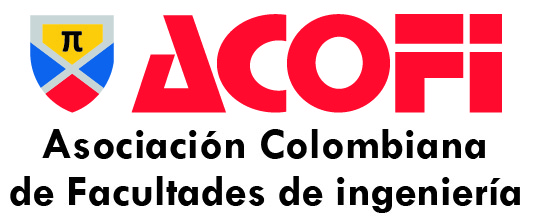Factor analysis for the measurement of student satisfaction in higher education: Case industrial engineering, Universidad Militar Nueva Granada
DOI:
https://doi.org/10.26507/rei.v12n24.774Keywords:
factor analysis, principal components analysis, universitary student satisfactionAbstract
A student satisfaction assessment tool was applied to industrial engineering undergraduate students of the Universidad Militar Nueva Granada (Colombia). Factorial Analysis was used for the identification of the main components in order for the Undergraduate Program Direction to implement strategies that can increase or consolidate the students’ satisfaction. Data collection was obtained by 310 surveys with 66 questions. Then a series of test were performed such as: the correlation matrix determinant, the KMO index and Bartlett test in order to verify the assumptions. Subsequently the Factorial Analysis was run, using Principal Components Analysis as the extraction technique. Using the Varimax extraction method, it was possible to identify 13 dimensions that account for 60.7% of the total variability, mainly associated with personal dignity, integrity, physical development, academic issues, and infrastructure and support services.Downloads
References
Gento, S. y Vivas, M., EL SEUE: Un Instrumento para conocer la satisfacción de los estudiantes universitarios con su educación. Acción Pedagógica. 12(2), pp. 16-27, 2003.
Mejías, A. y Martínez, D., Desarrollo de un instrumento para medir la satisfacción estudiantil en educación superior. Docencia Universitaria, X(2), pp. 29-47, 2009.
Catena, A., Ramos, M. y Trujillo, H., Análisis multivariado: Un manual para investigadores. Biblioteca Nueva Universidad. Manuales y obras de referencia. Madrid. 2013.
Comrey, L. and Lee, H., A first course in factor analysis. Hillsdale, NJ, LEA. 1992
Kartsounis, L., Mervyn-Smith, J. and Pickersgill, M., Factor analysis of the responses of British University students to the Fear Survey Schedule (FSS-III). Personality and Individual Differences. 4(2), pp. 157-163, 1983. DOI: 10.1016/0191-8869(83)90015-6.
Aldosary, A. and Assar, S., Analysis of factors influencing the selection of college majors by newly admitted students. Higher Education Policy. 9(3), pp. 215-220, 1996.
Romaniuk, M. and Khawaja, N., University student depression inventory (USDI): Confirmatory factor analysis and review of psychometric properties. Journal of Affective Disorders. 150, pp. 766-775, 2013.
Sangsuk, P. and Siriparp, T., Confirmatory factor analysis of a scale measuring creative self-efficacy of undergraduate students. Procedia - Social and Behavioral Sciences, 171, pp. 1340-1344, 2015.
Spooren, P., Mortelmans, D. and Christiaens, W., Assessing the validity and reliability of a quick scan for student's evaluation of teaching. Results from confirmatory factor analysis and G Theory. Studies in Educational Evaluation, 43, pp. 88-94, 2014.
Howard, S., Chan, A., Mozejko, A. and Caputi, P., Technology practices: Confirmatory factor analysis and exploration of teachers' technology integration in subject áreas. Computers & Education, 90, pp. 24-35, 2015.
Bryant, C., Maarouf, S., Burcham, J. and Greer, D., The examination of a teacher candidate assessment rubric: A confirmatory factor analysis. Teaching and Teacher Education, 57, pp. 79-96, 2016.
Chen, Y., Watson, R. and Hilton, A., An exploration of the structure of mentors' behavior in nursing education using exploratory factor analysis and Mokken scale analysis. Nurse Education Today, 40, pp. 161-167, 2016.
Mejías, A. y Martínez, D., Desarrollo de un instrumento para medir la satisfacción estudiantil en educación superior. Docencia Universitaria, 10(2), pp. 29-47, 2009.
Candelas, C., Gurruchaga, M., Mejías, A. y Flores, L., Medición de la satisfacción estudiantil universitaria: Un estudio de caso en una institución mexicana. Iberoamerican Journal of Industrial Engineering, Florianópolis, SC, Brasil, 5(9), pp. 261-274, 2013.
Cadena, M., Mejías, A., Vega, A. y Vásquez, J., La satisfacción estudiantil universitaria: Análisis estratégico a partir del análisis de factores. Industrial Data, 18(1), pp. 9-18, 2015.
Toledo, J., Percepción de la calidad de los procesos ofrecidos por el área de extensión cultural de la Universidad Pedagógica Nacional de Bogotá. Validación de un instrumento de medida. Tesis de Maestría, Universidad Nacional de Colombia, Bogotá, Colombia, 2015.
Uribe, M., Responsabilidad social en la Universidad del Tolima: Una mirada desde la comunidad vecina. Cuadernos de Administración, 31(54), pp. 89-98, 2016.
Buitrago, O., Espitia, A. anf Linares, D., Technical efficiency measurement of the teaching function in the undergraduate attendance programs at Universidad Militar Nueva Granada, TECCIENCIA, 7(18), pp. 25-35, 2015. DOI: 10.18180/tecciencia.2015.18.5. 2015.
Downloads
Published
How to Cite
Issue
Section
License
Total or partial reproduction of the documents published in the journal is authorized only when the source and author are cited.
| Article metrics | |
|---|---|
| Abstract views | |
| Galley vies | |
| PDF Views | |
| HTML views | |
| Other views | |









